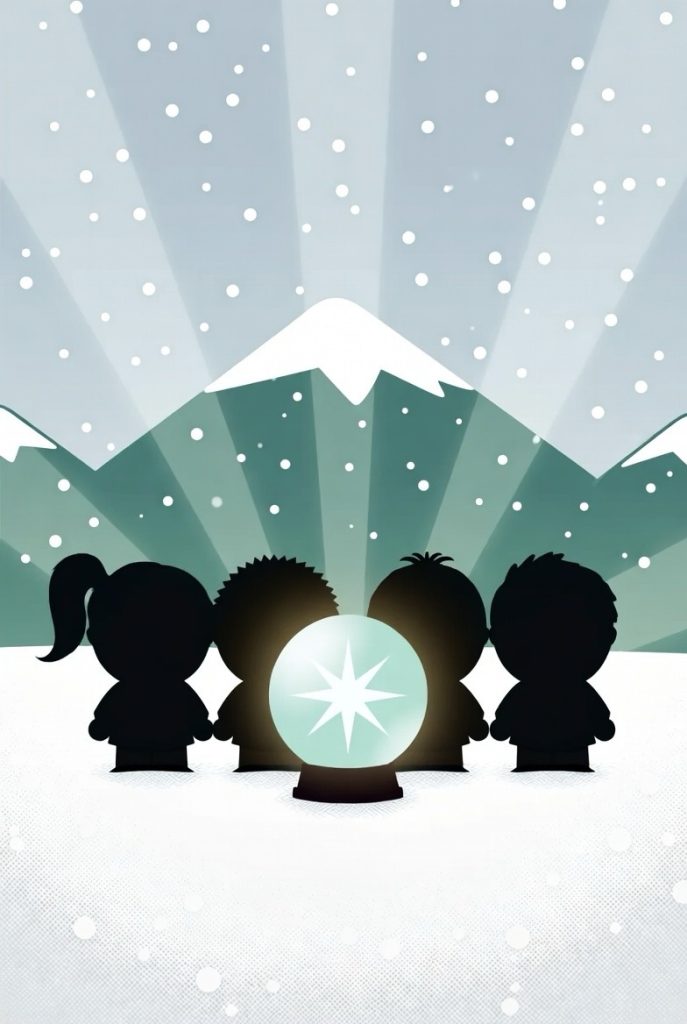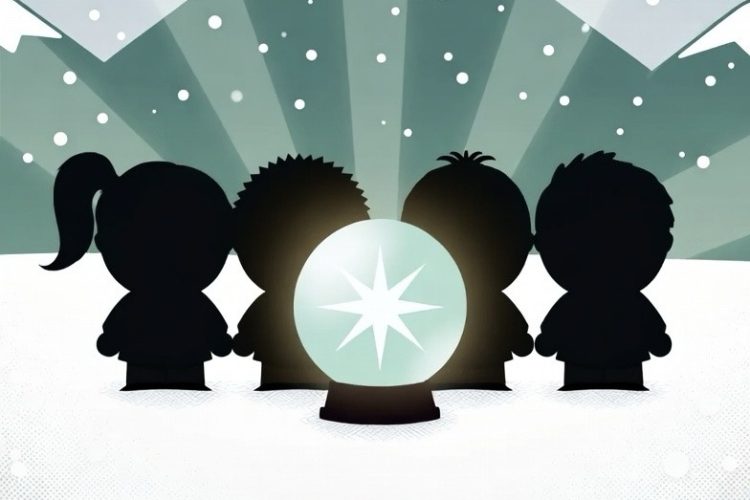South Park, created by Trey Parker and Matt Stone, has predicted real events since 1997 with sharp satire. Early episodes mocked gay cowboy films (Brokeback Mountain), Pokémon fads (Pokémon Go), and Osama bin Laden’s death. It foresaw Confederate flag bans, Jared Fogle’s scandal, Mel Gibson’s meltdown, and Trump’s wall. Celebrity takedowns nailed Britney and Miley Cyrus chaos. Health episodes predicted Ebola timing, gluten-free trends, and a Carnival “poop cruise.” Tech parodies hit AI in movies, drone wars, and Elon Musk’s Mars plans. Recent 2025 episodes roast crypto scams, prediction markets, and twisted religion. From PC culture to cancel culture, South Park’s eerie foresight blends humor and truth, making it a cultural mirror.
Long Version
South Park’s Prophetic Satire: Uncanny Predictions That Mirrored Real-Life Events
South Park, the iconic animated series created by Trey Parker and Matt Stone, has captivated audiences on Comedy Central since 1997 with its sharp satire, irreverent comedy, and biting cultural commentary. Over its many seasons, the show has earned a reputation for its prescient foresight, often parodying contemporary issues in ways that eerily foreshadow future real-life events. From political scandals and celebrity meltdowns to technological advances and health crises, South Park’s episodes have demonstrated an uncanny ability to predict the future, blending controversy with humor to deliver prophetic insights. This phenomenon has sparked discussions about the show’s eerie accuracy, turning it into a cultural touchstone for examining society’s trajectory.
Early Predictions: Laying the Foundation for Satirical Foresight
South Park’s prophetic streak began early, with episodes that seemed like mere parodies but later aligned with real-world developments. In Season 1’s “Pinkeye,” Cartman wears a ghost costume mistaken for a KKK outfit, leading to screams of outrage, while Season 5’s “Here Comes the Neighborhood” shows townsfolk using similar ghost costumes to scare away rich newcomers, portraying the tactic as a form of racial intimidation. This foreshadowed a 2015 incident where college cadets were suspended for donning KKK-like ghost outfits during a holiday skit.
Season 2’s “Chef’s Chocolate Salty Balls” has Cartman dismissing independent films as stories about gay cowboys eating pudding, a jab at film festivals that proved prescient when Brokeback Mountain, a drama about gay cowboys, became an Oscar darling.
Season 3’s “Chinpokomon” satirized fad obsessions, with kids hooked on Japanese toys that track locations via devices, mirroring the augmented reality frenzy of Pokémon Go, where players chased virtual creatures using GPS, leading to widespread addiction and data concerns. The episode’s commentary on consumerism and surveillance felt uncannily relevant as the game dominated headlines.
In Season 6’s “A Ladder to Heaven,” a news report shows Japan building a massive ladder-like structure to heaven, resembling the high-tech Tokyo Skytree, which began construction years later and became the world’s tallest observation tower.
Season 10’s “Make Love, Not Warcraft” mentions a fictional Hello Kitty Island Adventure game, which inspired the actual release of Hello Kitty Island Adventure as a real title.
Political and Social Commentary: Foreseeing Scandals and Shifts
South Park’s cultural commentary often ventures into politics, with episodes like Season 4’s “Chef Goes Nanners” debating the town’s racist flag depicting a lynching, eerily presaging Confederate flag controversies where retailers banned sales and states removed symbols from public property following racial unrest. The parody of tradition versus sensitivity captured the essence of later debates over such symbols. The episode also references sports team name changes, foreseeing the Cleveland Indians becoming Guardians and Washington Redskins rebranding to Commanders amid cultural sensitivity debates.
Season 5’s “Osama bin Laden Has Farty Pants” featured a cartoonish death for Osama bin Laden, blown up and shot in a Looney Tunes-style sequence, which mirrored his actual killing by Navy SEALs, including a fatal headshot.
In Season 6’s “Jared Has Aides,” Subway spokesperson Jared Fogle’s weight-loss story twists into scandal, predicting his conviction for child sex crimes, which tarnished the brand and led to his imprisonment.
Season 8’s “The Passion of the Jew” portrayed Mel Gibson as an anti-Semitic extremist, a satire that aligned with his DUI arrest where he ranted about Jews causing wars, damaging his public image.
Season 21’s “Holiday Special” exposes hypocrisy in rejecting figures like Christopher Columbus while embracing them in costumes, mirrored by a librarian’s Dr. Seuss controversy days later, where she criticized the books as racist but had previously dressed as a character from them.
PC culture and cancel culture were targeted in episodes like “Sexual Harassment Panda,” predicting the focus on misconduct, and characters like PC Principal embodied this shift.
Season 20’s “Where My Country Gone?” introduced a Trump-like figure building walls, predicting Donald Trump’s presidency and his border wall policies. This political scandal satire extended to “Put It Down,” where Mr. Garrison’s inflammatory messages echoed Trump’s threats toward North Korea.
Celebrity Meltdowns and Pop Culture Parodies
South Park excels at foreseeing celebrity trajectories. Season 12’s “Britney’s New Look” depicted media hounding Britney Spears, then named Miley Cyrus as the next target, presciently capturing Cyrus’s controversies involving her shift from teen idol to provocative figure.
The theatrical “South Park: Bigger, Longer & Uncut” satirized threats over controversial films, akin to later film release debacles involving international threats and canceled screenings.
Season 23’s “Tegridy Farms Halloween Special” features Randy hallucinating a killer Winnie the Pooh, foreshadowing the public domain entry of the character and the release of a horror film titled Winnie-the-Pooh: Blood and Honey.
Health Crises and Dietary Trends
Health-related predictions abound. Season 13’s “Dead Celebrities” featured a product for Chipotle-induced issues, foreshadowing an E. coli outbreak that sickened dozens and closed restaurants.
Season 14’s “Medicinal Fried Chicken” replaced KFC with marijuana dispensaries, predicting recreational marijuana legalization and a KFC shortage sparking black-market sales.
“Gluten Free Ebola” linked gluten-free diets to explosive deaths, coinciding with the first U.S. Ebola case and death, tying into broader gluten-free diet trends.
Season 14’s “Crème Fraîche” quipped about Carnival cruises smelling like poop, predicting the Carnival Triumph “poop cruise” where sewage overflowed after a fire.
Technological Advances and Future Visions
Technology features prominently. Season 8’s “AWESOM-O” showed studios using AI for movie ideas, mirroring later investments in AI for film predictions.
Season 18’s “The Magic Bush” depicted drone surveillance escalating to warfare, foreseeing drone countermeasures at events and airport shutdowns.
Season 20’s “Members Only” had Elon Musk planning Mars colonization, aligning with his announcements for Mars missions.
Season 18’s “Freemium Isn’t Free” critiqued addictive mobile games, predicting related developments in gaming monetization.
“The Tale of Scrotie McBoogerballs” mocked trigger warnings, now common for sensitive content.
ManBearPig, introduced as a climate change allegory, continues to symbolize environmental crises, with episodes reinforcing its prescient warnings.
Season 25’s “City People” features the sale of a hotdog stand turned home, mirroring the real Coney Island Hotdog going up for sale shortly after.
Recent Developments: Continuing the Prophetic Legacy in 2025
As of 2025, South Park maintains its edge with Season 28. The premiere episode, “Twisted Christian,” satirizes a viral “6-7” trend as a cult linked to the Antichrist, with Peter Thiel investigating to prevent its birth, while Donald Trump and JD Vance plot to abort Satan’s baby. PC Principal debates modern Christianity with Jesus, highlighting warped religious evolutions. This blends political scandal, cultural commentary, and controversy in an eerie parody of current obsessions.
The second episode, “The Woman in the Hat,” follows Stan’s family moving to a retirement home amid financial woes, leading him to voice frustrations online and create a meme coin exposed as a scam. Meanwhile, Trump is haunted by a mysterious spirit, prompting a séance investigation. The satire targets cryptocurrency frauds, pump-and-dump schemes, and political figures in absurd scenarios, potentially foreshadowing further economic or political upheavals.
Earlier in the year, an episode titled “Conflict of Interest” introduced prediction markets through a school betting app, where students wager on events like international conflicts, leading Kyle to challenge offensive bets that escalate to high levels of government. This prophetic take on emerging financial trends like odds apps and their societal impact could mirror real-life integrations of such markets into mainstream culture.
Conclusion: The Enduring Impact of South Park’s Foresight
Through its blend of comedy, parody, and controversy, South Park has proven itself a prophetic force, offering valuable insights into real-life events from zombie drugs and housing crises to technological advances and celebrity meltdowns. Trey Parker and Matt Stone’s animated series remains an authoritative resource for understanding cultural commentary, with its eerie predictions ensuring its place in television history. Whether tackling PC culture, marijuana legalization, or drones, the show’s uncanny prescience invites viewers to reflect on society’s path forward.







